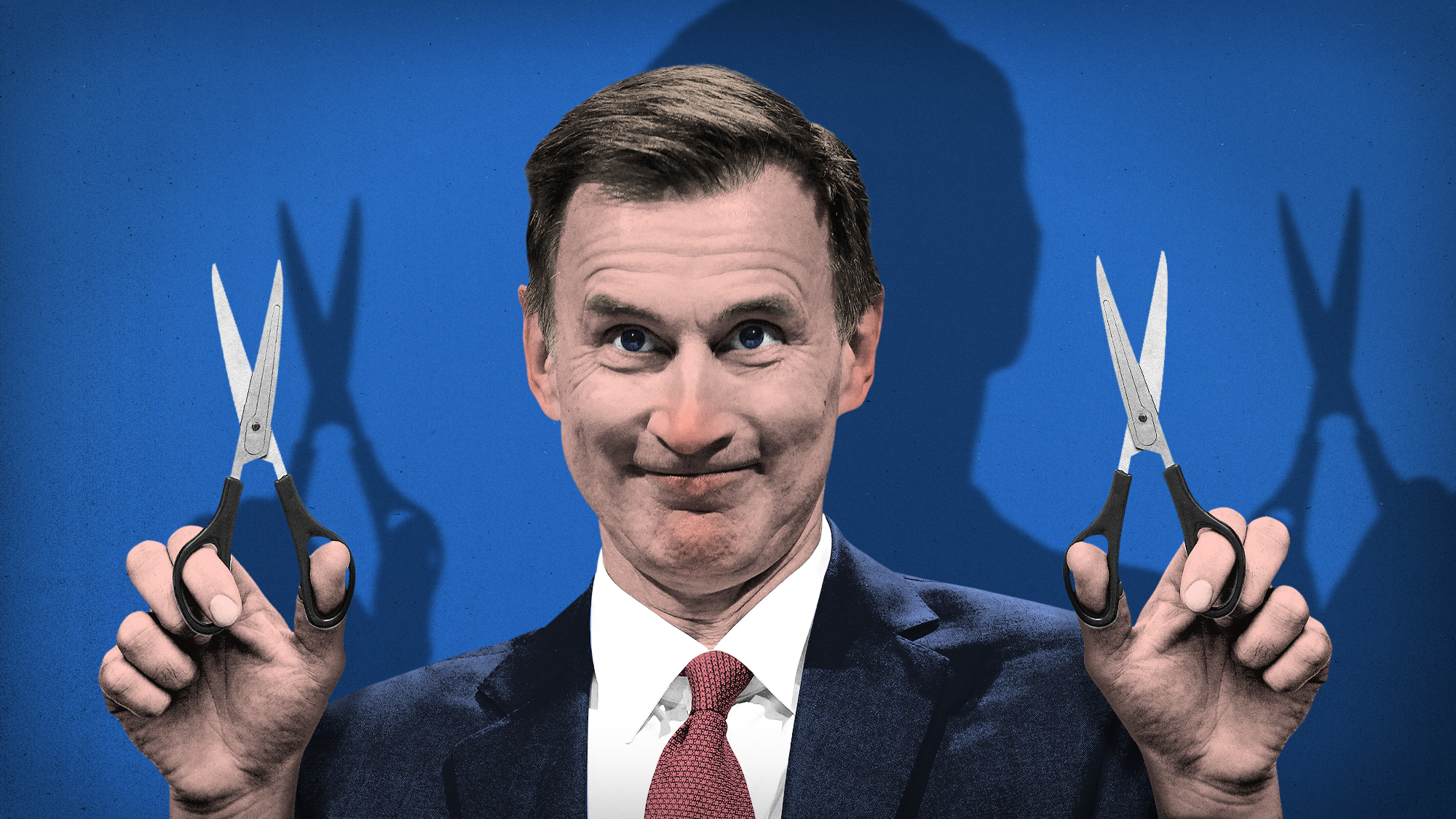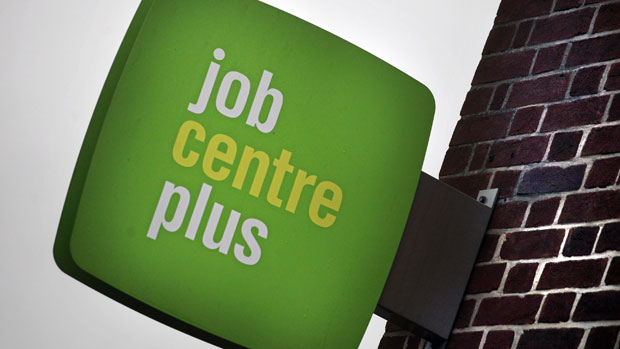Argos named and shamed among minimum wage offenders
Retailer now owned by Sainsbury's admits it underpaid staff by £2.4m in February

A free daily email with the biggest news stories of the day – and the best features from TheWeek.com
You are now subscribed
Your newsletter sign-up was successful
Minimum wage: are fears over national living wage founded?
21 December
There has been another flurry of negative headlines this morning over the incoming national living wage, which businesses say could have adverse effects on the UK economy as of next year.
Under the new rules, anyone over the age of 25 must be paid £7.20 an hour from next April, 50p more than the national minimum wage that was set at in October. The national living wage will rise each year to a target of 60 per cent of median earnings by 2020, when it is expected to be above £9 an hour.
The Week
Escape your echo chamber. Get the facts behind the news, plus analysis from multiple perspectives.

Sign up for The Week's Free Newsletters
From our morning news briefing to a weekly Good News Newsletter, get the best of The Week delivered directly to your inbox.
From our morning news briefing to a weekly Good News Newsletter, get the best of The Week delivered directly to your inbox.
The survey of 340 companies that together employ 1 million workers found a quarter believed they would hire fewer workers. Around 20 per cent plan to offset costs by reducing wider benefits to employees, such as performance-related bonuses and subsidised canteens. John Lewis and Tesco are among major employers that have already said they will have to make changes to staff perks in order to meet the costs of higher core wages.
But these effects are arguably exaggerated. The Guardian says that the survey found that more than 40 per cent of firms intend to increase the size of their workforce next year compared to just 13 per cent of firms that plan to downsize. It also found that the majority of low-paid workers get only modest perks, or none at all. Productivity improvements expected by companies in previous surveys will help to meet the costs.
Some experts argue that the current minimum rate of wages is only sustainable because it is subsidised by £30bn of working tax credits, making higher wages a necessary reform to reduce the strain on government finances.
One effect of the minimum wage that will be keenly felt is rising prices. Around a third of companies overall – and 50 per cent in sectors such as retail and hospitality – say they will have to increase costs to customers to pay for higher wages. But given the favourable consumer climate of low inflation, falling fuel prices and supermarket price wars this may not be all that damaging. Higher overall wages should also make any rising prices broadly manageable.
A free daily email with the biggest news stories of the day – and the best features from TheWeek.com
A sector likely to be particularly badly hit is care, where constraints on local authority funding could squeeze the degree to which prices can be raised and affect the viability of some providers. In his recent Autumn Statement George Osborne gave councils new powers to raise council taxes by two per cent to help pay for care services, but it remains to be seen if this concession will be enough.
Minimum wage: national living wage to cost businesses £1bn
15 December
A new, higher minimum wage for over-25s that comes into effect from next April will cost businesses £1.1bn in the first year, according to official calculations.
The Daily Telegraph reports that the Regulatory Policy Committee's assessment of the incoming 'national living wage' is that the up-front cost to businesses will be £700m.
In addition, there will be an associated bill of £137.5m for increased pension and national insurance contributions, £59.5m to up the pay of workers unaffected by the rules to maintain pay differentials and £224m in indirect transition expenses.
This is the cost to meet the £7.20-per-hour initial rate in April 2016. This will increase each year thereafter a rate equal to 60 per cent of median earnings by 2020, by which time it should be well above £9 per hour.
This implies that costs will escalate further in the coming years.
The Institute of Directors reiterated its support of the policy, despite the costs, but said businesses had given backing "as part of a deal" with the chancellor based on "lower taxes for higher wages".
It therefore criticised the government for adding costs at the last Autumn Statement such as £3bn a year through a new apprenticeship levy and demanded the government "now comes good on its promise of less red tape, fewer regulatory hurdles and a lower rate of corporation tax".
The RPC also said it is investigating the impact on employers of offering deals that go beyond the statutory minimum. Many have pledged to offer the wages to all workers, not just those aged 25 and over, or to better the basic pay offer, as they herald support for a boost to wages that many argue will improve productivity and thus be a net benefit to businesses.
This could help to alleviate wider concerns over the impact on under-25s, whom it said might not benefit from gaining jobs and experience as older workers might stay in their positions for longer.
The Huffington Post says this undermines one rationale of leaving out younger, apparently less productive workers from the new rules.
Frances O'Grady, the TUC's general secretary, said: "Under-25s... face the same expenses as other adults and are highly productive. Not paying them the full minimum wage will demotivate younger adults, who will get less pay than their colleagues for the same work".
Minimum wage: employers positive, but unprepared
08 December
A big majority of employers are positive on the new higher minimum wage coming from next April, but most have done little to prepare for its impact.
A survey of more than 1,000 employers conducted on behalf of the Department for Business, Innovation and Skills found more than nine in ten (93 per cent) thought the new national living wage was "a good idea".
A similar number said it would help them boost staff productivity, while more than eight in ten said it would boost morale and make staff more loyal.
The national living wage is a new minimum wage for over-25s, which is being phased-in from next April.
It will initially be set around £7.20 an hour, but will rise each year towards a target of 60 per cent of median earnings by the end of this parliament, which should be well in excess of £9.
But the survey, published on the day the legislation to bring in the change was laid before parliament, also found employers are still unprepared for the changes to come.
Less than half had updated their payroll to take account of who qualifies for the new rate, while only four in ten had communicated the changes to staff.
Previous surveys (see below) have suggested that more than half of companies will see their wage bill rise - but that, again, the costs should be broadly offset by increases in productivity. There are particular challenges, however, in sectors where staff are mostly young and low-paid.
One such sector is hospitality and leisure. A separate survey undertaken by the trade body for larger licensed retailers, reported by The Publicans Morning Advertiser, estimates around half of all hourly paid staff in pubs, nightclubs and restaurants will get a pay rise under the new rules.
JD Wetherspoon, which operates bars across the country, has warned a number of times about the impact of the reforms on profits in the sector. But others have dismissed the concerns, saying wages have been too low and that government tax credits are propping up company earnings.
Minimum wage: first call centre agrees to voluntary living wage
04 December
A telemarketing company based in Irvine, Scotland, claims to be the first call centre to agree to pay the voluntary minimum wage.
The Guardian reports that Voca Telemarketing will pay all of its 66 workers, irrespective of their age, £8.25 per hour from January. The move is equivalent to a £3,100 pay rise for those working full time on the current national minimum wage of £6.70, which Voca currently pays.
The voluntary minimum wage is set on behalf of the Living Wage Foundation by academics at Loughborough University and the Greater London Authority. It was raised in October to £9.40 in London and £8.25 in the wider UK.
In contrast, the national living wage was announced by George Osborne in his Budget in July and is effectively a major increase in the minimum wage for those over the age of 25 anywhere in the UK.
It is set at £7.20 per hour from April next year and will rise to 60 per cent of median earnings by 2020, when it is expected to be well in excess of £9 per hour.
The introduction of the new rate has sparked criticism both from employers, who argue it will bring an unfair cost burden, and campaigners who argue it is not high enough.
Osborne has said it will be a catalyst for change – and in the supermarket sector in particular it has already sparked a wage war which has pushed wages well above the incoming minimum.
Voca, which "employs staff to make sales calls on behalf of a variety of clients, including a big energy firm", has said the higher remuneration will help it recruit for 45 posts in January and February.
The Living Wage Foundation says 2,053 companies are accredited as 'living wage employers', meaning they pay the voluntary rate to all directly-employed workers and have committed to renewing all contract staff at the rate when terms of business are renegotiated.
Shadow chancellor John McDonnell has said he will introduce a "kitemark" for "good companies" that both pay the living wage and pay their taxes if Labour wins the next general election, as the Evening Standard reported.
Minimum wage: companies pledge to boost productivity
18 November
George Osborne has been given a boost over his plans to introduce a substantially higher minimum wage for most workers, after a study of employers played down the risk of job losses, price rises or hiring younger workers not covered by the law.
From next April, the national living wage will guarantee those over the age of 25 an hourly rate of at least £7.20, 60p more than the current national minimum wage. This will rise to 60 per cent of median earnings by 2020, when it is expected to have risen well above £9 per hour.
Critics have claimed that job losses resulting from the policy could exceed the 60,000 predicted by the Office for Budget Responsibility.
But a study of more than 1,000 companies by the Resolution Foundation and the CIPD, the professional body for personnel staff, found just 15 per cent were planning to reduce headcount through redundancies or reduced hiring. The Financial Times says 54 per cent of firms responded that their wage bill was set to rise, meaning less than ten per cent will actually cut staff.
The most popular response, chosen by 30 per cent of companies, was to invest in training and equipment to make their workers more productive. The next most popular, with 22 per cent was to accept reduced profits, followed by reducing overtime or bonuses.
Only around 15 per cent said they would increase prices to offset the impact – and fewer than one in ten will reduce working hours, hire more workings under 25 or reduce investment plans.
This all amounts to a positive case for the changes, but the authors cautioned that achieving a productivity boost is easier said than done. Conor D'Arcy, policy analyst at the Resolution Foundation, said this would "prove challenging in many sectors".
The Guardian notes [2] there will be particular issues for the care sector, where companies were much less likely to seek productivity improvements and which campaigners argue needs up to £2bn of government funding to prevent failures. Public sector organisations were also more likely to reduce headcount, with one in five saying they would make bigger cuts in staff numbers.
-
 Political cartoons for February 18
Political cartoons for February 18Cartoons Wednesday’s political cartoons include the DOW, human replacement, and more
-
 The best music tours to book in 2026
The best music tours to book in 2026The Week Recommends Must-see live shows to catch this year from Lily Allen to Florence + The Machine
-
 Gisèle Pelicot’s ‘extraordinarily courageous’ memoir is a ‘compelling’ read
Gisèle Pelicot’s ‘extraordinarily courageous’ memoir is a ‘compelling’ readIn the Spotlight A Hymn to Life is a ‘riveting’ account of Pelicot’s ordeal and a ‘rousing feminist manifesto’
-
 Why au pairs might become a thing of the past
Why au pairs might become a thing of the pastUnder The Radar Brexit and wage ruling are threatening the 'mutually beneficial arrangement'
-
 Five key takeaways from Jeremy Hunt's Autumn Statement
Five key takeaways from Jeremy Hunt's Autumn StatementThe Explainer Benefits rise with higher inflation figure, pension triple lock maintained and National Insurance cut
-
 Real living wage: are you about to get a pay rise?
Real living wage: are you about to get a pay rise?In Depth More than 4,700 businesses have agreed to increase their staff’s hourly rate
-
 Amazon accused of cutting benefits to fund pay rises
Amazon accused of cutting benefits to fund pay risesSpeed Read Trillion-dollar company eliminates bonuses and stock awards for hourly workers
-
 UK unemployment down – but so is the average wage
UK unemployment down – but so is the average wageSpeed Read Economists warn of 'paymageddon' as average wages see 'shock' fall for the first time in five years
-
 Living wage rises to £7.85, but 5 million workers still underpaid
Living wage rises to £7.85, but 5 million workers still underpaidIn Depth Support for the living wage increases, but campaigners say more must be done for working families